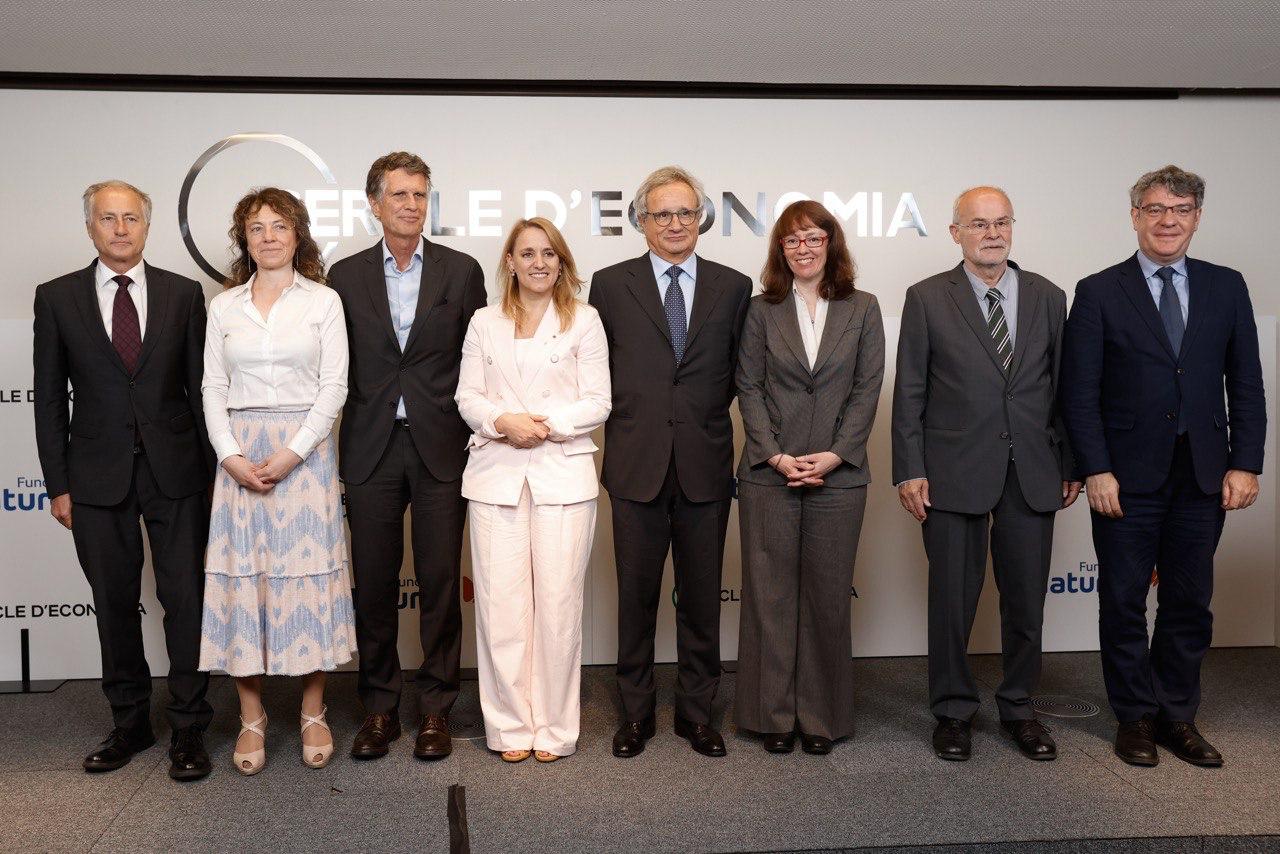The Naturgy Foundation and the Cercle d’Economia are analysing the situation of the energy sector in the current international scenario
National and international experts addressed the main challenges of the energy transition in Europe and Spain in a context marked by the war in Ukraine, climate change and growing commercial protectionism, advocating for striking a balance between sustainability, security of supply and competitiveness.

Today, the Naturgy Foundation and Cercle d’Economia held the ‘Situation of the Energy Sector’ conference, where national and international experts addressed the complex international panorama situation, with a particular focus on Spain and Europe. The speakers discussed how the war in Ukraine, the effects of climate change and growing economic protectionism are affecting the energy sector, advocating for a balance between sustainability, security of supply and competitiveness.
Several experts participated in the conference, including Lara Lázaro, head researcher at the Elcano Royal Institute and teacher of economic theory at CES Cardenal Cisneros; Christopher Jones, teacher at the Florence School of Regulation and former Energy Director of the European Energy Commission; Álvaro Nadal, Chief Economic and Commercial Advisor of the Spanish Economic and Commercial Office in London, and Spain’s former Minister for Energy, Tourism and Digital Agenda; Antoni Castells, Emeritus Professor of Economics at the Universitat de Barcelona, and former of Minister for Economy and Finance of the Government of Catalonia; and Núria Mas, teacher of economics at IESE and member of Cercle d’Economia’s board of directors, who moderated the discussion. Minister for Economy and Finance of the Government of Catalonia Natàlia Mas closed the conference, which was also attended by the president of the Cercle d’Economia, Jaume Guardiola; Miquel Nadal, managing director of the Cercle d’Economia; María Eugenia Coronado, managing director of the Naturgy Foundation, and Rafael Villaseca, Chairman of the Naturgy Foundation.
“Countries are bringing their climate commitments forward, although this does not mean that we are on the path to restricting greenhouse gases. Science is drawing attention the enormous gap between the current reductions in the greenhouse effects and those we need to stop global warming from increasing”, said Lara Lázaro in her speech. She added that “although climate action is a fact and a shortterm issue, the benefits will only be visible in the long term. They will be diffuse and especially beneficial to the most disadvantaged countries, so we are dealing with a complex problem”.
Meanwhile, Christopher Jones talked about the main measures aimed at making energy more sustainable: “Increase renewable energy, make carbon more expensive, ban the use of coal and apply subsidies.” Regarding the latter, he said that “a vast number of measures are being passed in the EU to achieve net zero emissions, unlike what they are doing in the US and China, and this has a direct impact on the competitiveness of European products. In this regard, the EU taking the necessary steps to fight climate change, however costly this may be, because if we don’t do it, who will?
On the same subject, Álvaro Nadal said that “Europe is more ideologically conditioned in its policies to combat climate change than it is willing to admit. It is remembering that other policies could also be effective. Why do we think that Europe is doing it well and the rest of the world is doing it badly? The distribution is out of balance”.
According to Antoni Castells, “the world has gone from globalisation to strategic autonomy due to factors such as the pandemic and the invasion of Ukraine. A process of deglobalisation is underway. A situation is developing that looks a lot like a trade war and protectionism, which is making the Western bloc more fragmented. All this has consequences for the energy sector”. In his speech, he said that “there are three critical issues when it comes to transformingthe energy sector: guaranteeing supplies of critical raw materials for renewables, solving the problem of the intermittency of renewables, and the need to mobilise enormous resources”.
During the closing event, Natàlia Mas referred to the Government of Catalonia’s commitment and the challenge of staying competitive facing everyone: “The Government of Catalonia is working to link energy policy to industrial policy; hence, it is registering it in the national pact for industry.”
Meanwhile, Rafael Villaseca said that “society is making huge efforts to fight climate change, which should be rewarded with realistic, effective measures”. Jaume Guardiola thanked the organisers for “the opportunity to have an enlightened discussion on an enormously interesting and complex subject”.
During his speech at the opening event, Miquel Nadal remarked that “the energy sector is in the throes of a deep change and transition, during which several dimensions that must be considered: security of supply, sustainability, competitiveness and energy efficiency”. María Eugenia Coronado added that “this is a crucial time, with enormous challenges that demand difficult decisions to be made that will have far-reaching effects on society and the overall economy”.
Share